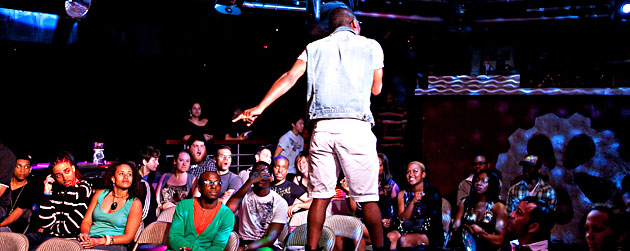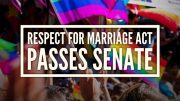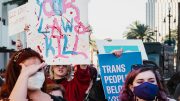By: Nicole Lashomb/TRT Editor-in-Chief—
Despite the U.S. Supreme Court’s marriage equality ruling in Obergefell v. Hodges, LGBT activists agree that there are still more battles to win before LGBT equality is achieved—battles including those of the most disenfranchised, they said.
“Though the June 26 ruling by the U.S. Supreme Court was a tremendous victory for the LGBTQ community, by no means is the work done,” said Robyn Ochs, MassEquality board co-chair. “There are still numerous issues that need to be tackled in Massachusetts and nationally. From solidifying explicit legal protections for transgender people in public spaces to ending youth homelessness to providing culturally competent care for LGBTQ seniors to ensuring funding for programs and services for people living with HIV/AIDS, the work is ongoing.”
Leaders agree that intersectionality is a critical component to securing the future of LGBT rights, often drawing focus on marginalized groups that lack support of the mainstream community.
“In some states you can still be fired form your job for marrying your same-sex partner,” said Corey Yarbrough, Executive Director, Hispanic Black Gay Coalition. “Activists need to focus more on workplace discrimination and economic justice within the LGBTQ community. [They] should also understand and embrace intersectionality by showing visible solidarity to other social justice battles and focusing on those within our own community who are often voiceless in the movement. Undocumented queer immigrants, HIV+ individuals, and homeless LGBTQ youth, for example, are all populations that deserve more attention and resources from the mainstream LGBTQ community.” [pullquote]“…[Activists] should also understand and embrace intersectionality by showing visible solidarity to other social justice battles and focusing on those within our own community who are often voiceless in the movement. Undocumented queer immigrants, HIV+ individuals, and homeless LGBTQ youth, for example, are all populations that deserve more attention and resources from the mainstream LGBTQ community.”[/pullquote]
Ochs agreed with Yarbrough’s assessment and expressed the need of organizations to work together.
“It is essential that we do this work taking into account the intersections of demographic markers such as race, ethnicity, class, gender identity and age, working collaboratively with other organizations and movements to ensure that the disparities that exist at these intersections are adequately addressed,” she said.
Although Boston filmmaker Amir Dixon celebrates the marriage equality ruling, he also expressed concern for how true equality is depicted.
“As long as Trans* women of color are being murdered, under-employed and face discrimination in health care settings, 40% of youth are LGBTQ and young black gay men sit at the epicenter of the HIV epidemic in this country, we are not even close to equality,” Dixon said.
Yarbrough explained the impact that the Obergefell ruling had on him as a black gay man.
“Like many Black LGBTQ people across the country, the day of the marriage equality ruling was extremely bittersweet for me,” Yarbrough explained. “While thousands were publicly celebrating marriage equality in the streets, others were mourning the burial and murder of Black lives, resulting from acts of racism and injustice in Charleston.”
It’s not that marriage equality was legal nationwide, it is that Yarbrough’s concerns are about inequalities that still exist and still affect him, despite gay marriage.
“The landmark ruling represents great progress, yet came on a day that painfully reminded me that not everyone, even within the LGBTQ community, can benefit from that progress due to other forms of injustices and discrimination,” he said. “It is impossible for me to disassociate the joy of being able to marry as a gay man from the rage of feeling devalued as a Black person in America.”
Healthcare equity is another issue that the LGBT collective should be focused on, according to Dixon.
“Access to comprehensive services is something we are not receiving,” he said. “Something that we are not talking about is our lack of access to mental health services, sexual health services or simply finding a doctor that isn’t a completely homophobic and transphobic a$$hole!”
In addition, other LGBT issues have also been forced to stay in the dark in order to pave the way for same-sex marriage.
“The single-focus on marriage equality has deferred progress on full equality for LGBTQ people in all other areas of our lives,” said Ben Power Alwin, Curator, Sexual Minorities Archives and Executive Director, Sexual Minorities Educational Foundation, Inc. “In particular, the Transgender community has been forced to take a back seat and ‘wait our turn’ for any measure of Trans rights on the federal level and within most states in the U.S. We must change this and refocus our united LGBTQ commitment in the spirit of Stonewall, a rebellion ignited by Trans people of color!” [pullquote]“We particularly need to protect transgender people and LGBTQ people of color from discrimination, and to include protections for all LGBTQ people in employment, housing and public accommodations. We also need to make sure that claims of religious liberty don’t get used as an excuse for discrimination, as we saw in Indiana a few months ago.”—Christopher Ott, Communications Director, ACLU of Massachusetts[/pullquote]
MassEquality board co-chair Stan Zanarotti posed a question to mainstream LGBT America.
“… this is a critical moment for our community nationally: Now that marriage has been won, will the folks who have focused on the marriage equality movement step up to the plate and support advocacy organizations as we work on other LGBT issues?” Zanarotti asked.
With more activists and organizations dedicated to forging ahead on the LGBT road to equality, the marriage victory, according to other leaders, can be used as a springboard to further other initiatives, especially for communities of color, among others.
“Marriage equality nationwide does represent a huge victory, but we still need to keep working for other protections,” said Christopher Ott, Communications Director, ACLU of Massachusetts. “We particularly need to protect transgender people and LGBTQ people of color from discrimination, and to include protections for all LGBTQ people in employment, housing and public accommodations. We also need to make sure that claims of religious liberty don’t get used as an excuse for discrimination, as we saw in Indiana a few months ago.”
The message to the masses and the subsequent framework it established, set up the fight for other causes, according to Ott.
“… The marriage fight showed that we can move public opinion—and the protection of the law—in favor of equality, and we need to continue doing that to address other forms of discrimination,” Ott said. [pullquote]“We need to evaluate and confront racism in our community and address issues of economic inequality that affect so many of us,” Minahan said. “We need to make sure health needs are being met by ensuring full health coverage for transgender people and by finally getting Massachusetts down to zero new HIV infections. We have a lot to do—but marriage showed us we can do it.”—Neal Minahan, Boston Attorney, Chair of the Board of BAGLY, Chair of the MassEquality PAC[/pullquote]
Some protections cannot wait.
“First, we need to win full equality protection for transgender people in Massachusetts—and we need to do it this year,” said Neal Minahan, Boston Attorney, Chair of the Board of BAGLY, Chair of the MassEquality PAC. “We need to focus on LGBTQ young people—they come out younger and younger and need our support. The rate of homelessness among LGBTQ youth is staggering and, even in Massachusetts, we’ve only just begun to deal with the problem.”
It has to start somewhere, including everyone, protecting everyone, deconstructing systematic barriers meant to compartmentalize individuals, was the resonating message of community leaders.
“We need to evaluate and confront racism in our community and address issues of economic inequality that affect so many of us,” Minahan said. “We need to make sure health needs are being met by ensuring full health coverage for transgender people and by finally getting Massachusetts down to zero new HIV infections. We have a lot to do—but marriage showed us we can do it.”









Amen! Thank you for covering this. There is SO much work left to be done. I hope the Massachusetts LGBT & ally community will step up and support MassEquality, the Massachusetts Transgender Political Coalition, BAGLY and the many other organizations working so hard to make sure that we are all treated with respect and dignity from cradle to grave.